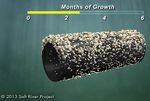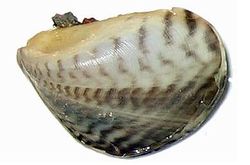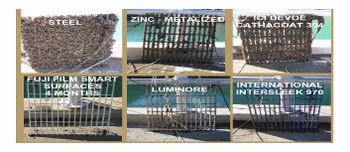Difference between revisions of "Quagga"
From Glen Canyon Dam AMP
(fix) |
(add 2013 SRP Quagga in Pips animation- PIC) |
||
| Line 1: | Line 1: | ||
This is the Quagga Mussle Information Page- | This is the Quagga Mussle Information Page- | ||
| − | [[Image:Quagga Pic (1).JPG|thumb|left|250px]] '''[[Media:Quaggas Pipe 2013.mp4| Quagga Pipe 2013-Video Clip- Courtesy of Salt River Project]]''' | + | [[Image:Quagga Pic (1).JPG|thumb|left|250px]] [[File:2013 SRP Quagga in Pips animation- PIC.jpg|150px]]'''[[Media:Quaggas Pipe 2013.mp4| Quagga Pipe 2013-Video Clip- Courtesy of Salt River Project]]''' |
[[Image:Quagga Surface Tests.jpg|thumb|right|150px]] | [[Image:Quagga Surface Tests.jpg|thumb|right|150px]] | ||
Revision as of 15:10, 21 August 2014
This is the Quagga Mussle Information Page-
 Quagga Pipe 2013-Video Clip- Courtesy of Salt River Project
Quagga Pipe 2013-Video Clip- Courtesy of Salt River Project
Contents
Quagga Facts/ Trivia
What are the Currently Effective Control Methods Used for Mussels?
Methods of Control:[1] Oxygen Deprivation | Temperature Treatments | Exposure and Dessication| Ultraviolet Radiation | Manual Scraping | High-pressure Jetting | Mechanical Filtration | Passive and Barrier Filtration | Removable Substrates | Chemicals (Chlorine) or Molluscicides | Ozone | Antifouling Coatings | Electric Currents| Sonic Vibration | Natural Predators or Biological Controls| Bacteria (Pseudomonas Fluorescens)
Quagga Mussel Information
Zebra VS Quaggas:
- Quaggas are the dominant species of the two and will displace Zebras.
- Quaggas tolerate colder temperatures, and are more abundant at greater depths, reproduce at lower temperatures, and are more likely to grow in single layers and produce more patchy distributions.
- Unlike Zebras, Quaggas don't necessarily need hard substates to attach and grow. They can grow on the soft, silty bottom sediments.
Quagga Mussel Archive
- JS-Online_Quagga Video link_Affects to the shore line of Great Lakes
- 080509_Quagga Video Feed at Fish Hatchery
References
Rules and Laws
- Utah law prohibits the transport of quagga mussels — dead or alive — through the state. Violators are subject to thousands of dollars in fines and up to one year in jail for a crime that is classified as a Class A misdemeanor.
The Bureau of Reclamation- Quagga web-page


